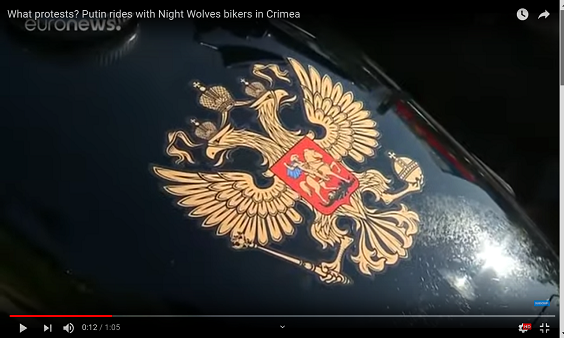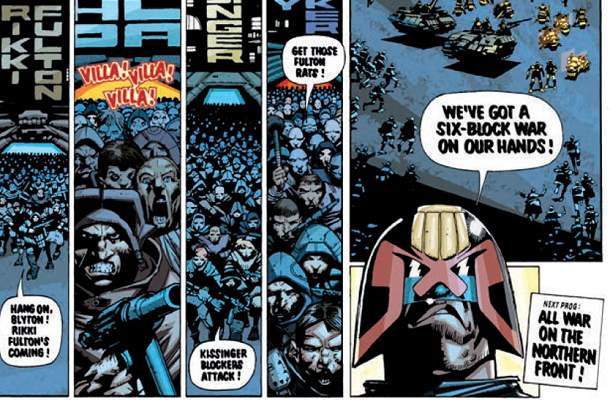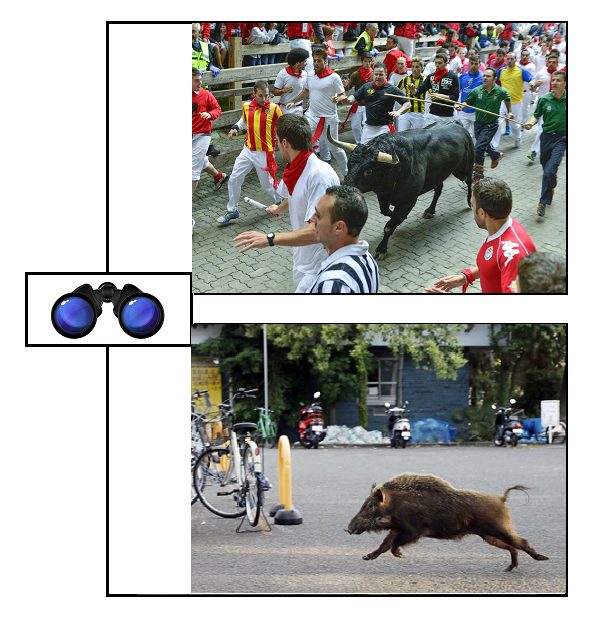A very interesting title from 2014, & a title match, 1972
Saturday, February 15th, 2020[ by Charles Cameron — a biker gang as alt-army, a chess board as Cold War battlefield — Night Wolves, and Fischer Spassky ]
.
I mentioned the Night Wolves bikers in my post It’s how we / they roll in May 2015, and there have been many reports of their activities elsewhere — but yesterday I was pointed to some videos I hadn’t seen before, and came across this intriguing title on an RT video from Sevastopol, 2014:
Russia: Epic Night Wolves biker rally takes war in Ukraine to the stage
Similar, is this Guardian headline from 2916:
Putin’s Angels: the bikers battling for Russia in Ukraine
**
Think about it. Taking a war to the stage — with a couple of rock bands, a light show, plenty of fires, and the Night Wolves themselves making high bike jumps across the stage — may sound like little or nothing, but for the citizens of Sevastopol is’s either w pretty profound warning or a pretty powerful affirmation that the Crimea belongs to Mother Russia.
That’s quite an audience! And read the caption:
This city will come back
Sevastopol will stay Russian
**
Note — this is a very short video clip — that Putin rides with the Night Wolves — in Crimea:
Note that Putin‘s bike has the Russian Imperial insignia of a double-headed eagle — on his gas tank!
Note the crown at the very top, and St George slaying the dragon in the center panel.
**
If you have 35 minutes, watch this — it’s pretty damn impressive for a show put on by a biker gang:
If you don’t have 35 minutes, just flick through it, catching a sense of the thing. But uit’s well worth watching in full, so perhaps you can find time to come back and watch it later.
**
The title of this post claims that “Epic Night Wolves biker rally takes war in Ukraine to the stage<" is A very interesting title". Any text which suggests that war can be considered a drama, a game, or a dream -- a subset of reality -- is of inherent interest: think of the impact of the black American athlete Jesse Owens crushing his German opponent to win four gold medals in Hitler's 1936 Summer Olympics!
In this case we have the claim that war can be enacted in a rock and roll and light show. A comparison with warfare as chess may prove illuminating: consider the Telegraph article titled How Bobby Fischer and Boris Spassky became pawns — the title itself is extraordinary, making pawns of two great chess grand masters!
Even before Fischer-Spassky, we are told:
For the USSR, chess had always been a key weapon in the Cold War.
And the match itself? For this, let’s turm to an Irish Times article:
Cold War in Reykjavik as Fischer breaks Soviet defender Spassky
Never before or after has a chess tournament, or perhaps any sporting event, taken on such non-sporting significance. This was not Spassky v Fischer. It was the USSR v US. [ .. ]
The fate of a nation has rarely depended on the result of a sporting endeavour. But that was how the match-up between Fischer and Spassky was portrayed in the lead-up to Reykjavik in 1972.
When he defeated Spassky, we are told, Fischer “was treated as a war hero.” Spassky resigned by telephone– and Fischer? Ever the eccentric —
The audience (about 2,500) burst into rhythmic applause and rose. Fischer, still busying himself at the chessboard, again nodded, looked uncomfortable, glanced at the audience from the corner of his eyes and rushed off.










